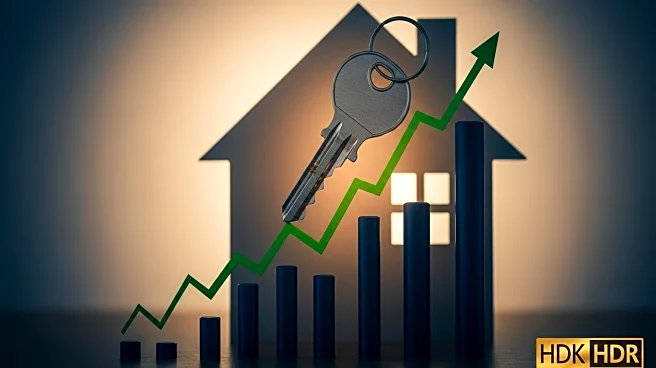What's Happening?
The average rate on a 30-year U.S. mortgage has increased for the second consecutive week, reaching 6.34%, according to Freddie Mac. This rise follows a period of declining rates that had previously brought borrowing costs to their lowest level in nearly a year. The increase in mortgage rates is influenced by several factors, including the Federal Reserve's interest rate policies and bond market investors' expectations regarding the economy and inflation. The 10-year Treasury yield, which serves as a guide for pricing home loans, was at 4.10% at midday Thursday, down from 4.19% the previous week. The recent decline in the 10-year yield has been driven by discouraging reports on the U.S. economy, particularly concerning the job market. Despite the Federal Reserve's recent decision to cut its main interest rate, mortgage rates have begun to rise again, echoing a similar pattern observed last year.
Why It's Important?
The increase in mortgage rates is significant as it affects the housing market, which has been in a slump since 2022 when rates began climbing from historic lows. Higher mortgage rates can deter potential homebuyers and impact the affordability of homes, leading to a decrease in home sales. The rise in rates also affects homeowners looking to refinance their mortgages, as refinancing becomes less attractive unless rates fall below 6%. With about 81% of U.S. homes having a mortgage rate of 6% or lower, the current rate environment limits refinancing opportunities for many. The broader economic implications include potential slowdowns in the housing market, which can affect related industries such as construction and real estate.
What's Next?
Economists generally forecast that the average rate on a 30-year mortgage will remain near the mid-6% range this year. The Federal Reserve's future interest rate decisions will be closely watched, as they could influence mortgage rates further. Homeowners and potential buyers will need to monitor these developments to make informed decisions about buying, selling, or refinancing homes. The housing market's response to these rate changes will be critical in determining the overall economic impact.











